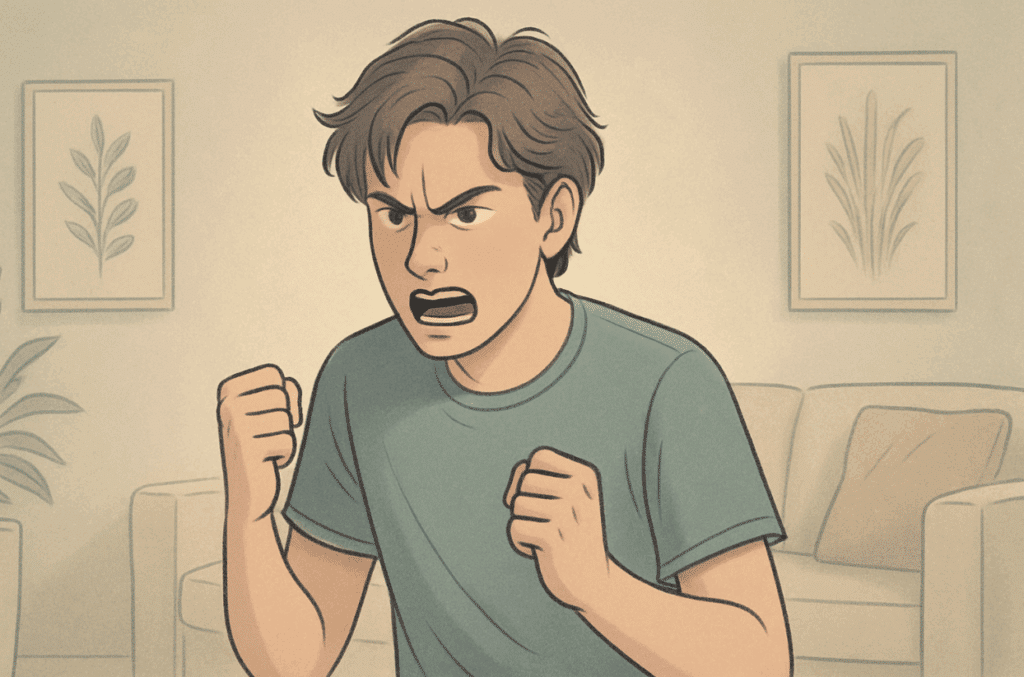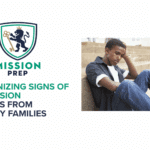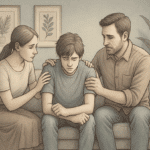Key Takeaways
- Teen boys often mask depression with irritability and anger rather than sadness, making it harder to identify than in girls.
- Physical symptoms like unexplained aches, fatigue, and changes in eating habits can be surprising indicators of depression in adolescent males.
- Academic decline, sleep disturbances, and social withdrawal are early warning signs that you should monitor.
- Digital behavior changes, including gaming obsession and social media withdrawal, may signal underlying depression.
- Mission Prep offers comprehensive depression treatment that includes thorough assessments, evidence-based therapies, and residential programs that address depression’s impact on daily life while building healthy coping mechanisms and instilling hope for lasting recovery.
How Depression Differs Among Teenage Boys
Depression in teenage boys presents unique challenges that often go unrecognized and untreated. While depression affects adolescents of all genders, boys face distinct societal pressures and expectations that can complicate both the expression and recognition of their mental health struggles.
Teen depression in boys frequently manifests differently than in girls, with symptoms that may include increased irritability, and anger outbursts rather than the more commonly recognized signs of sadness or crying. This difference in presentation, combined with cultural expectations around masculinity, creates a perfect storm where many boys suffering from depression remain invisible to parents, teachers, and healthcare providers.
The consequences can be severe, as untreated depression in teenage boys is associated with higher rates of risk taking, academic failure, and tragically, suicide. A boy who seems “fine” might actually be struggling with significant depression that he’s become adept at masking from others, and sometimes even from himself.
Mission Prep Healthcare specializes in mental health treatment for teens aged 12-17, offering residential and outpatient programs for anxiety, depression, trauma, and mood disorders. Our therapies include CBT, DBT, EMDR, and TMS, tailored to each adolescent’s needs.
With a structured, supportive environment, we integrate academic support and family involvement to promote lasting recovery. Our goal is to help teens build resilience and regain confidence in their future.
10 Warning Signs of Depression in Teen Boys
Early Indicators
1. Anger Outbursts
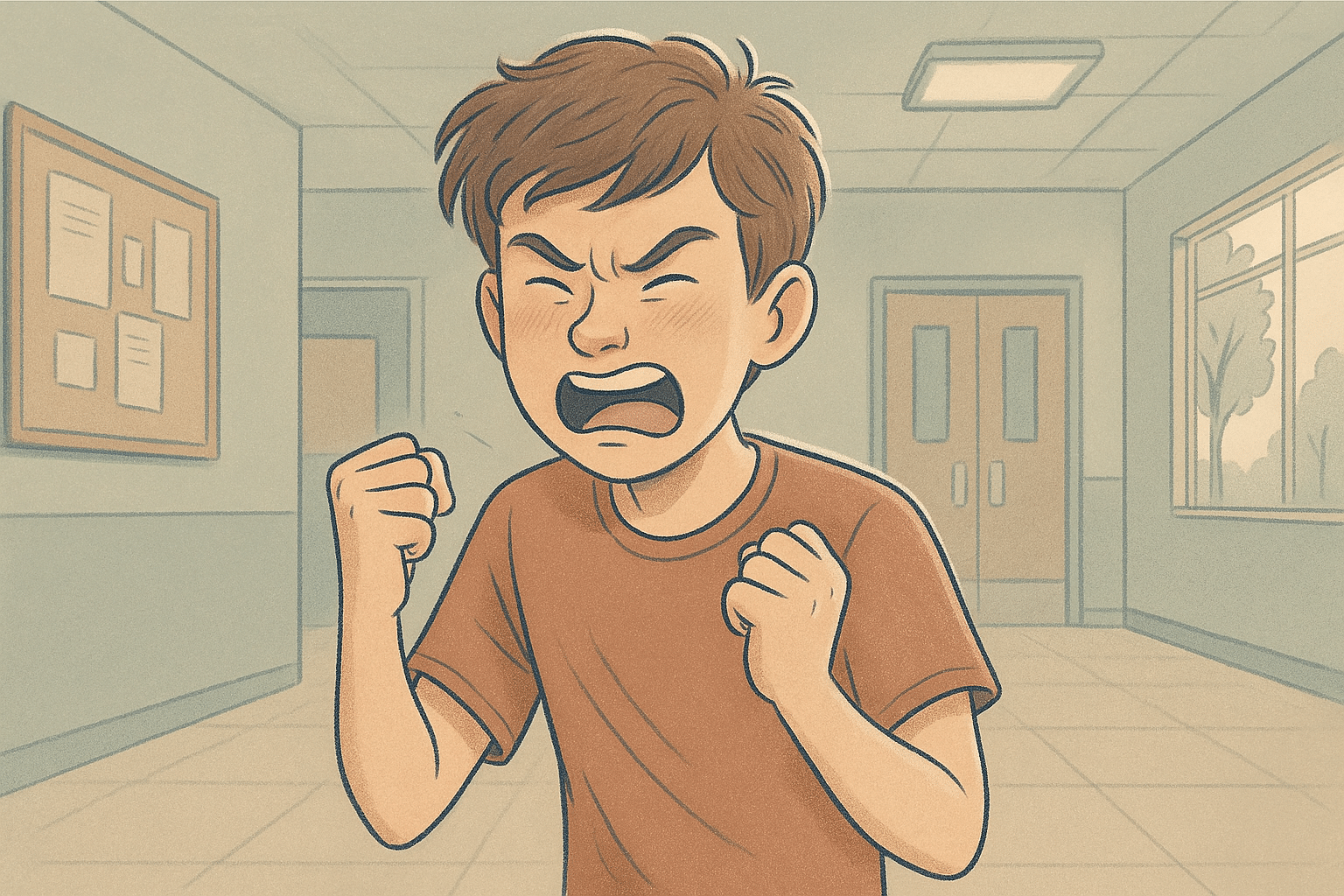
For many teenage boys, anger becomes the primary emotional expression of underlying depression.
Not all angry outbursts are normal teenage moodiness. Boys with depression often display a hair-trigger temper where minor frustrations provoke disproportionate rage.
These outbursts might seem to come from nowhere, leaving family members walking on eggshells. What’s actually happening is that depression lowers the threshold for frustration tolerance, making normal daily challenges feel overwhelming.
2. Social Withdrawal
A teenage boy with depression may gradually pull away from friends, drop out of activities he previously enjoyed, and spend increasing amounts of time alone. This withdrawal often happens subtly. You might make excuses to avoid social gatherings or claim you’re “just tired” when declining invitations.
While changing interests is normal in adolescence, completely dropping activities without replacing them with new ones can signal depression.
3. Drop in Grades
The cognitive symptoms of depression, including difficulty concentrating, memory problems, and slowed thinking, directly impact school performance. You might turn in incomplete assignments, skip classes, or get comments from teachers about your inattention or disengagement.
Some boys stop caring about their academic future entirely, making statements like “what’s the point?” when discussing school or college plans. This academic apathy reflects the hopelessness that characterizes depression rather than typical teenage rebellion.
4. Sleep Changes
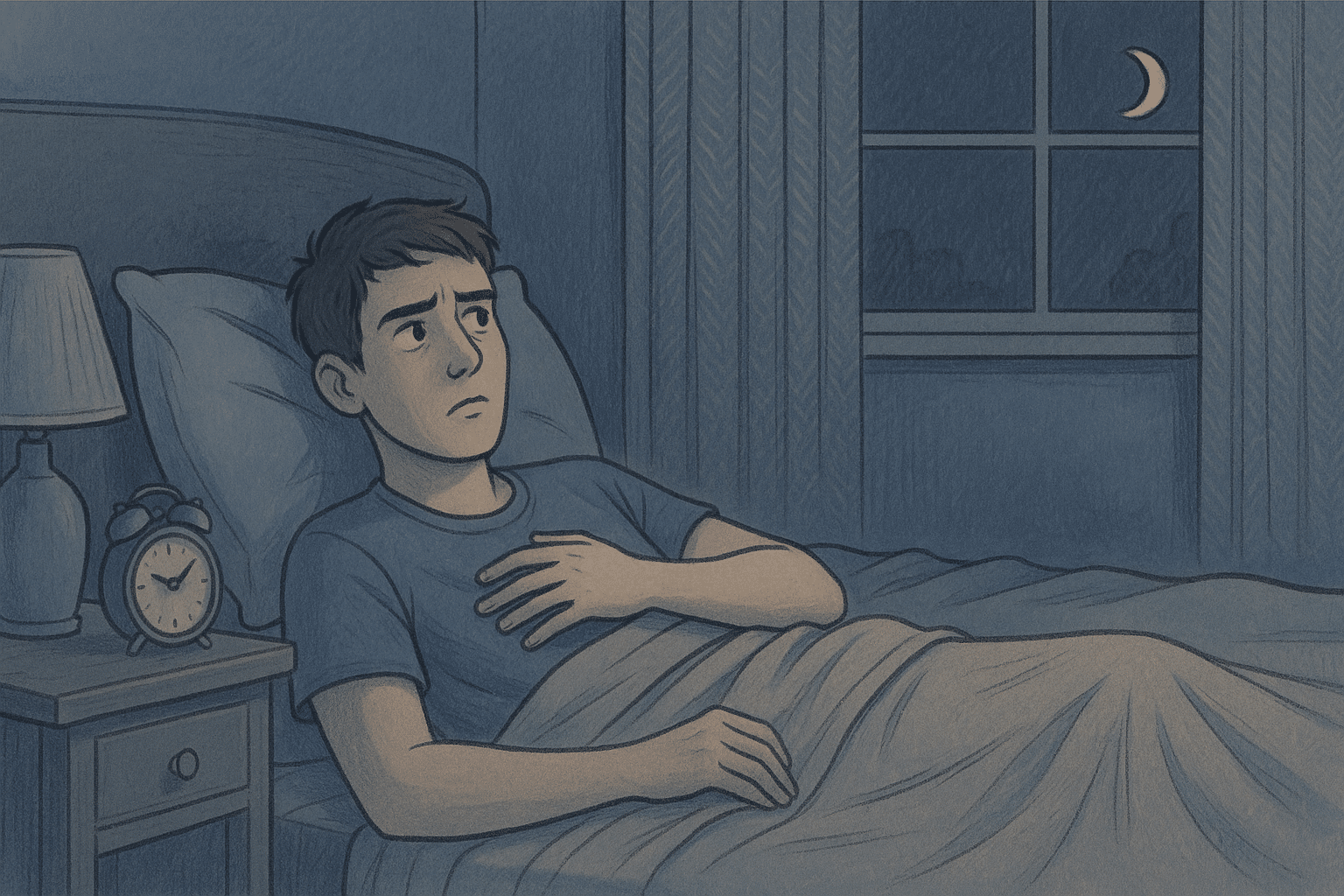
Depression disrupts sleep patterns in significant ways.
Some depressed teens experience insomnia, or difficulty falling asleep, staying asleep, or waking too early. Others might sleep excessively, struggling to get out of bed in the morning and napping for hours after school.
Either extreme can signal depression, especially when it represents a change from previous patterns.
5. Loss of Interest
Depression strips away the ability to feel pleasure, a condition called anhedonia, which manifests as disinterest in activities that were once enjoyable. For teen boys, this might look like abandoning favorite hobbies, sports, or creative pursuits.
Video games, music, or other pastimes that once brought joy might suddenly seem pointless or unfulfilling. This isn’t just changing interests; it’s a pervasive lack of enthusiasm for anything. When you notice you “don’t care” about things you used to love, you’re describing a neurological reality of depression, not making a choice to disengage.
Physical Symptoms
6. Unexplained Aches
Headaches, stomachaches, muscle pain, and other physical complaints with no clear medical cause frequently accompany depression in teen boys.
Depression alters pain perception and triggers inflammatory responses in the body. Many boys find it easier to say “my stomach hurts” than “I feel sad,” making these somatic complaints an important clue for parents and healthcare providers.
7. Energy Depletion
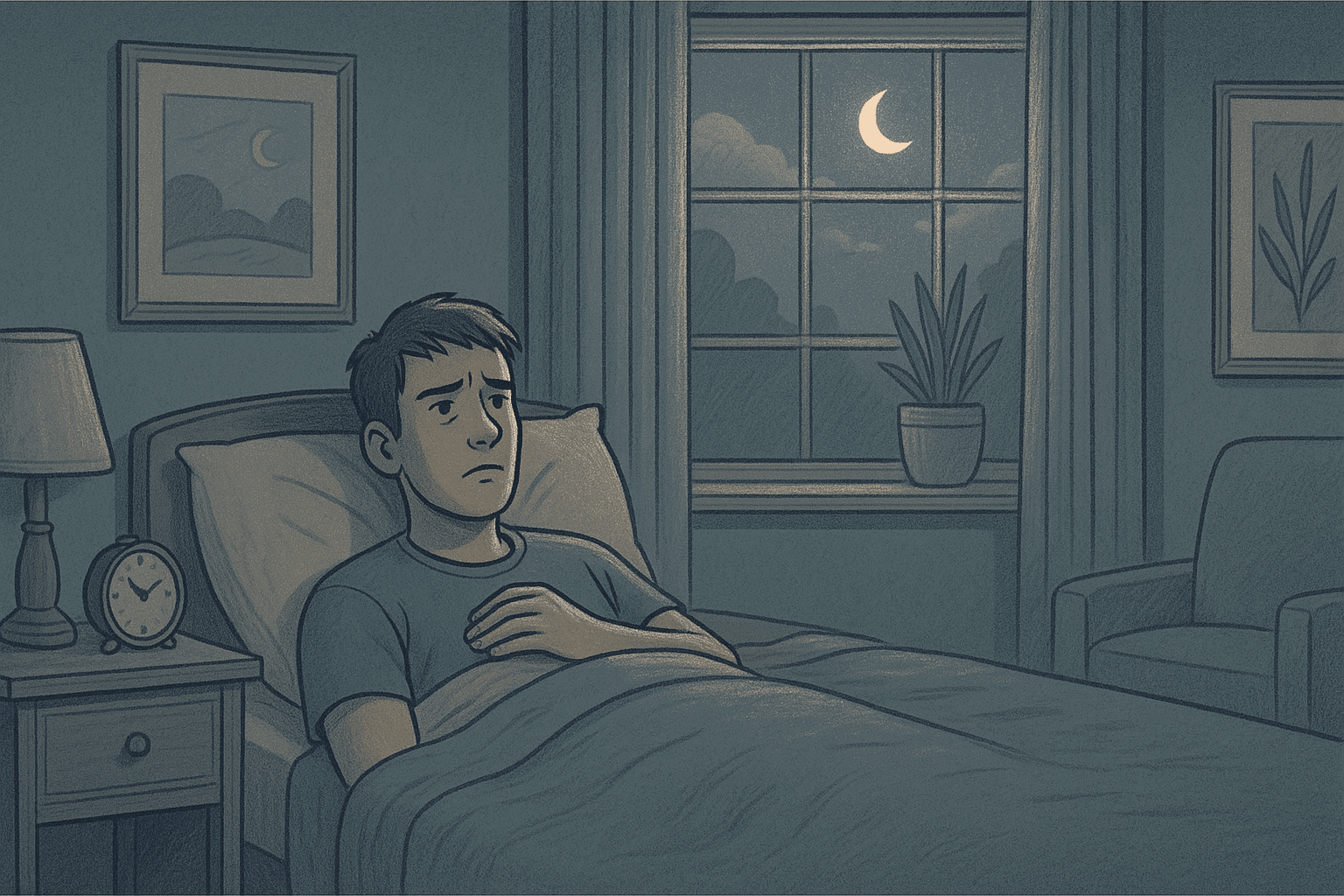
Profound fatigue and lack of energy are hallmark symptoms of depression that particularly affect teen boys.
Everything feels harder and requires more effort, from getting out of bed to completing homework or participating in family conversations.
This isn’t normal teenage laziness; it’s the result of depression’s impact on motivation circuits in the brain and disruption of normal energy metabolism.
8. Appetite Changes
Depression commonly disrupts eating patterns, causing either significant appetite loss or emotional overeating. Some boys stop eating regular meals, skip breakfast, or pick at dinner, while others might develop patterns of mindless snacking or late-night eating.
The brain–body connection means that neurotransmitter imbalances associated with depression directly affect hunger signals and metabolism. When your eating habits change dramatically, depression is affecting your brain’s regulation of basic biological drives.
Changes in Digital Behavior
9. Gaming Obsession
While gaming is a normal teen activity, depressed boys may use gaming as a form of escape that becomes excessive or compulsive. You might lose yourself in virtual worlds for 8–10 hours at a stretch, play through the night, or become irritable when unable to play.
This can often be an attempt to numb emotional pain or find a sense of accomplishment that feels unattainable in real life.
10. Social Media Patterns
Depressed teen boys might dramatically change their social media usage, either withdrawing completely or developing an unhealthy preoccupation with online interactions.
Some might lurk without posting, comparing their lives unfavorably to peers’ highlight reels. Others might post dark content, share nihilistic memes, or engage with depression-related communities that can sometimes worsen symptoms through unhealthy validation.
Pay attention to the emotional tone of what you consume and share online. A shift toward darker content, expressions of hopelessness, or preoccupation with death-related themes on platforms like TikTok, Reddit, or Discord can indicate depression that needs professional attention.
When to Seek Help
Crisis Warning Signs
Certain red flags demand immediate professional attention, sometimes through emergency services if your regular healthcare provider isn’t immediately available. These include suicidal statements or behaviors, giving away prized possessions, specific suicide plans, extreme withdrawal, or sudden calmness after a period of depression (which can indicate acceptance toward suicide).
Other urgent warning signs include self-harm behaviors like cutting, or expressions of feeling trapped with no way out. If you observe these concerning behaviors, reach out immediately to a crisis service, emergency room, or call the 988 Suicide and Crisis Lifeline.
Finding the Right Professional
Start with your pediatrician or family doctor for an initial evaluation and referrals to mental health specialists. Look specifically for professionals with experience treating adolescent males, as they’ll better understand the unique ways depression presents in teen boys. Options include psychiatrists (medical doctors who can prescribe medication), psychologists (who provide therapy), and licensed counselors or therapists specializing in adolescent mental health.
When selecting a provider, consider factors beyond credentials; personality matters tremendously. Some boys respond better to male therapists, while others prefer female providers. Some connect with direct, activity-based approaches, while others benefit from more traditional talk therapy. If the first professional isn’t a good match, don’t give up; finding the right therapeutic relationship often takes persistence but dramatically impacts treatment success.
Mission Prep: Specialized Care for Teen Boys with Depression
At Mission Prep, we specialize in treating adolescent depression with a deep understanding of how boys uniquely express emotional distress. Our comprehensive approach begins with thorough assessments that evaluate the full impact of depression on your daily life, including sleep patterns, nutrition, energy levels, and cognitive function.

We understand that depression creates a lack of motivation and feelings of heaviness. That’s why we create a calm environment that provides support to teens during their recovery process.
What sets Mission Prep apart is our focus on building hope and connection. We work to instill a sense of belonging through group sessions and evidence-based Cognitive Behavioral Therapy strategies that help teens manage their environment and make choices that aren’t dictated by depression.
Our residential programs offer the intensive support that severely depressed teens need, with 24/7 supervision, personalized care plans, and peer support systems. We also work closely with families, providing parents with tools to communicate effectively with their depressed teen and helping them understand that their child is separate from their struggles. Early intervention saves lives, let us help you reclaim your future.
Frequently Asked Questions
How is depression in teen boys different from girls?
Teen boys typically express depression through irritability, anger, and risk-taking behaviors rather than the sadness and emotional expression more common in girls. Boys are more likely to report physical symptoms like headaches or stomachaches, withdraw socially, or engage in risk taking rather than verbalize feelings of sadness.
Can depression in teens go away without treatment?
While mild, situational depression sometimes resolves without formal treatment, clinical depression rarely improves without appropriate intervention. Depression actually tends to worsen over time if left untreated, potentially leading to more severe symptoms and complications like suicidal behavior.
Are antidepressants safe for teenage boys?
Antidepressants can be effective for teen boys with moderate to severe depression, particularly when combined with therapy, but require careful medical supervision. Some antidepressants carry an FDA “black box” warning about potentially increased suicidal thinking in adolescents, especially during the first few weeks of treatment. The decision to use medication should be made collaboratively between parents, the teen, and healthcare providers after thoroughly discussing potential benefits and risks.
How does Mission Prep approach teen depression treatment?
Mission Prep offers comprehensive and personalized treatment for teen depression through thorough assessments including family history and ACEs evaluation. Our approach focuses on depression’s impact on daily life including sleep, diet, and energy levels.
We utilize evidence-based strategies like early light exposure, fresh air therapy, and gentle movement while working with families to build understanding and communication skills. Our residential programs provide 24/7 supervision, intensive therapy options, and peer support in a safe, structured environment.
- How Parents Can Help Teens With Depression
- Family Support for Teen Depression
- Understanding Teen Depression
- Does Teen Depression Go Away?
- How Daily Stressors Impact Teen Depression
- Healthy Ways to Cope With Teen Depression
- How to Talk to Parents About Depression
- Sadness vs. Depression: When to Seek Help
- Coping Strategies for Seasonal Affective Disorder


